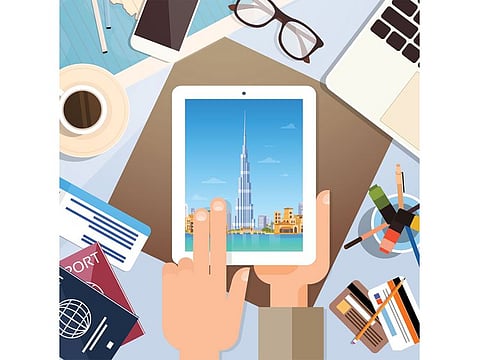New ways take hold in UAE hotel space
Experiences are what travellers’ seek, and UAE hospitality can make that happen

Considering the travel and tourism sector’s competitive spirit in rapidly adopting leading global trends, the UAE continues to be one of the most attractive destinations in the world, with Dubai and Abu Dhabi the most visited places in 2018. Dubai’s overall visitors reached 15.9 million and Abu Dhabi’s a total of 5 million hotel guests.
In fact, research reveal international tourists visiting the country are expected to grow up to 25.5 million between 2017-22 based on a 4.3 per cent compound annual growth rate.
The wellness mantra
One major shift is travellers’ deepening preference for self-fulfillment and meaning. “Purposeful travel” or “transformational journeys” are serving the needs of this increasing number of enthusiasts. With UAE’s tourism industry valued at $36 billion, wellness tourism accounts for 12-13 per cent.
Younger travelers are more aware of the importance of taking healthier food choices, as well as consuming within environmentally sustainable practices. New luxury leisure seekers would want to spend time doing healthier activities and some moments of solitude and relaxation.
These trends bode well for those offering spaces for yoga and meditation. Adventure trips and nature explorations also continue to be among global trends and UAE’s mountains and desert regions have become the new nesting ground for travelers.
Creating moments
Experience is everything for today’s travelers and luxury hospitality is successfully meeting the needs of travelers seeking higher levels of personalization and unique indulgences exclusive to them. UAE’s unique propositions have been notable considering the options for discerning travelers seeking for new experiences within a desert environment. Interestingly, in Dubai, luxury five-star and four-star hotels take up 34 and 25 per cent of the emirate’s total inventory.
Other services that are on top of luxury seekers’ list include specific seat numbers on planes to hotel rooms, or certain types of cars for rent to Instagram-mable spots in table settings when dining. The UAE’s high level of engagement and focus on innovation puts the tourism sector in the best position to serve this growing segment.
Disruptors
Disruptive technologies continue to be among the main features that will define hospitality services. Recognition technology, robots, chatbots, A.I., internet-connected thermostats, lighting controls, virtual reality and augmented reality are all on the way.
Blockchain, for instance, can help facilitate transactions that can serve as a “digital wallet” and increase efficiency for organized team activities (OTAs). It also adds value to security through availability of personal information as well as access to service payments incurred in room usage.
In addition, mobile technology also offers new trends in hospitality allowing for mobile check-ins and access to a variety of guest services including digital room keys.
Different ways to manage
International hotel companies have started to offer franchising of their brands, easing on the traditional management contract approach. The development of “soft” brands, on the other hand, is set to provide hotels with the opportunity to offer new brand names while retaining its identity and character.
However, the more interesting trend that is already expanding globally is the “Oyo model”, which started as a hotel aggregator, following the business model of Uber where OYO operators provide rooms with standardized quality and price from selected partners. This has now shifted to a franchise model where they no longer lease rooms from hotels but ask the hotel partners to operate them as a franchise.
We have also seen the emergence of food and beverage partnerships between hotel operators and F&B outlets. Hotels operating their own food and beverage outlets are often not the best rated venue for dining among guests.
In the UAE, the licensing laws require that the average hotel has far more F&B outlets than is customary in other parts of the world. The core business of a hotel is selling rooms and there is a clear trend towards outsourcing and partnering with F&B experts rather than developing in-house.
The UAE is facing two of its largest sources of tourists in Asia, China and India, both are economic giants with growing number of middle-class travellers wanting to experience the world. Report shows that in 2020, approximately 140 million Chinese tourists will travel outside China. Indications are already visible that these visitors see the UAE as a viable destination.
The number of tourists from India also continue to grow, as increasing number of Indians with disposable incomes see the UAE as the easiest option for foreign travel considering its proximity and historical ties to the country.
Overall, the hospitality sector is well in line with the nation’s ambition to stay on top of the global tourism map as the most popular and best destination for leisure and travel in the world.
Low Ping is CEO of Eagle Hills.



